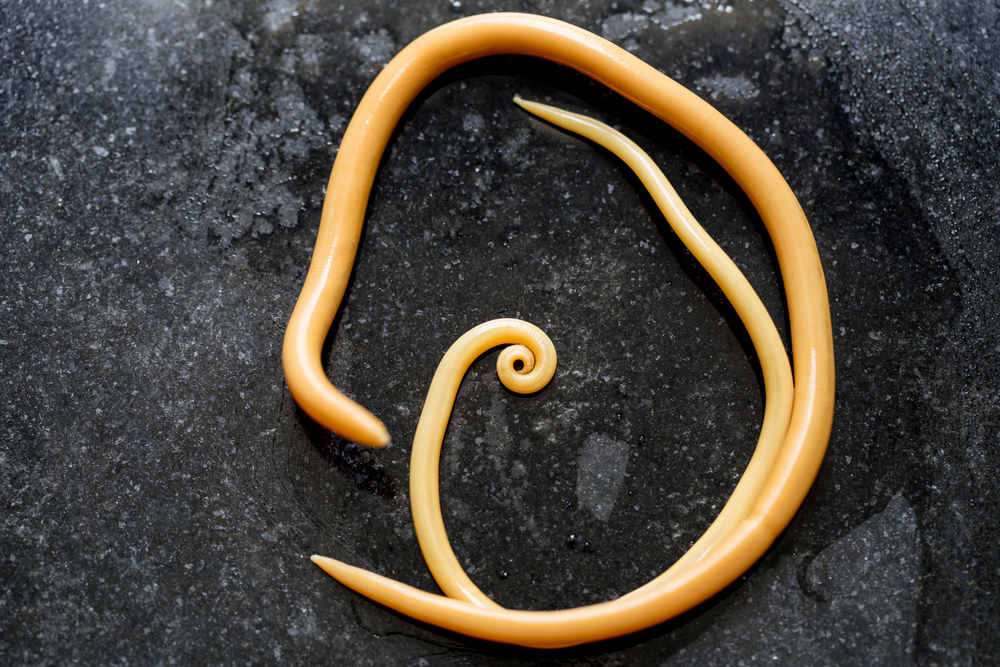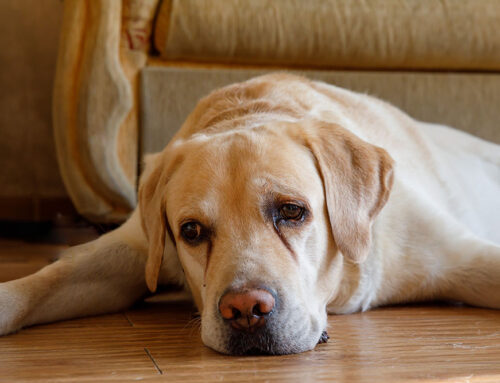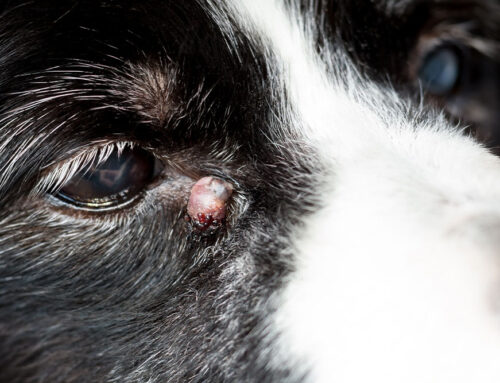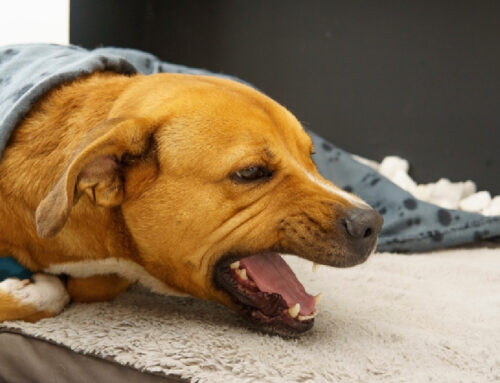Cleaning up your dog’s business is never pleasant, and when their business turns watery, stinky, or bloody, cleanup is a real drag. Dogs develop diarrhea for many reasons, and while the runs often resolve on their own, a veterinary diagnosis and treatment is often necessary to put a stop to the loose stools. If your four-legged friend begins to have watery stools, they most likely have one of five canine diarrhea causes, which our Village Animal Hospital team is always prepared to diagnose and treat.
#1: Dietary indiscretion in dogs
Dogs are curious creatures, and their high-powered noses can get them into trouble as they gobble down inappropriate items such as foreign bodies or foods that irritate their digestive system, and cause them to develop diarrhea. Puppies are well-known for eating socks, small children’s toys, and other objects. Foreign-body ingestion typically causes dogs to vomit and have diarrhea, and requires emergency surgical removal.
Dietary indiscretion includes edible items that irritate your dog’s digestive system. Despite being edible, many foods—scraps, table food, or hot dogs off the grill—can upset your dog’s stomach, and cause them to develop diarrhea. Food that your dog is unaccustomed to eating can irritate their gastrointestinal tract, especially foods that are high in fat or heavily seasoned.
Your dog can also experience diarrhea if you abruptly change their diet by introducing a new food brand, or simply switching their accustomed food brand’s protein source and flavor. If you decide to change your dog’s food, gradually introduce the new food over a week or so, increasingly adding a small amount of the new food each day.
#2: Stress diarrhea in dogs
Stress, anxiety, and fear can wreak havoc on your dog’s gastrointestinal tract. If your dog is feeling anxious, they may become inappetent, or despite eating only a small amount, your stressed pup can develop diarrhea. In many cases, stress diarrhea occurs after a boarding stay or a move to a new house or family. Occasionally, the diarrhea will include blood and mucus, and will not fully resolve until your pet’s anxiety has subsided.
#3: Bacterial or viral infections in dogs
The same bacterial infections that cause humans to experience gastrointestinal distress can cause dogs to develop diarrhea. Raw or undercooked meat, decaying vegetables, or contaminated food products can cause pets to contract Salmonella, E. coli, or Listeria infections. For example, if you unwittingly give your pup Salmonella-tainted peanut butter in a Kong, they may contract the pathogen. Keep an eye out for food recalls, and ensure any food you share with your dog is properly cooked.
Viral infections can also cause diarrhea, especially parvovirus—dogs’ most notorious diarrhea-causing viral disease. Typically, parvovirus affects puppies, and can lead to vomiting, bloody diarrhea, and death. Other viral diseases that can cause your dog’s gastrointestinal issues include distemper, coronavirus, and other rotaviruses. In general, viruses are highly contagious and can be easily transmitted through fecal material. If your dog develops a viral infection, clean and disinfect their bathroom area thoroughly to prevent reinfection and to avoid infecting other dogs.
#4: Intestinal parasites in dogs

Intestinal parasites are most commonly found in animal feces and outdoor water sources, such as ponds and stagnant puddles. If your dog ingests contaminated stool or water, they may consume parasitic cysts or eggs that can lead to foul-smelling, greasy, or mucus-coated diarrhea.
Your dog can transmit their intestinal parasites to you, so use good hygiene practices after cleaning up messes by always washing your hands thoroughly. In addition, keep in mind that parasite eggs and cysts can survive for months or years, and your dog can shed them in your home or on their fur. To prevent reinfection, disinfect appropriately during their deworming treatment.
#5: Organ dysfunction in dogs
When your dog’s organs are not functioning properly—whether because of inflammation, infection, trauma, age, or myriad other causes—diarrhea can develop. Kidney and liver disease can cause diarrhea, as can pancreatitis. If your dog has organ disease, they will oftentimes show other signs, along with diarrhea.
If your pooch develops cow pie-like stool, they likely need veterinary intervention. Schedule an appointment with our Village Animal Hospital team to put an end to your dog’s diarrhea.








Leave A Comment